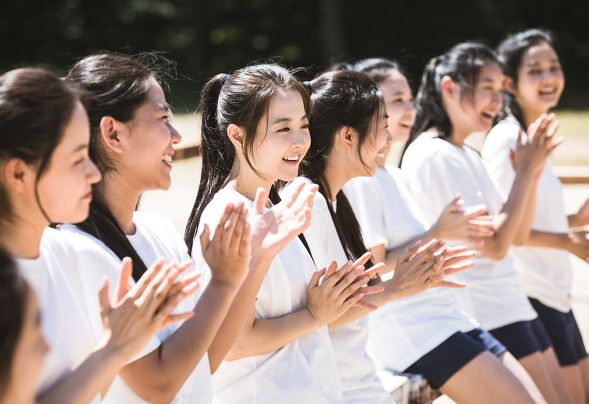
독자들이여, 제발 공포영화를 무시하지 않았으면 좋겠다. 여러분 가운데 몇몇 분은 공포영화를 관객의 지성보다 인간의 원초적 두려움과 욕구를 자극하는 상스러운 오락물 쯤으로 여길 것이다. 겉보기엔 그럴 수 있다. 하지만 공포 영화 장르에도 예상하기 힘든 깊이가 숨어있다. 무엇보다도, 훌륭한 공포영화는 우리의 의식보다 무의식을 겨냥하고 있다. 이 무의식은 늘 놀라움을 만들어낸다.
사실 나도 공포영화를 기피해 왔다. 뭐랄까. 마치 쐐기풀이나 해파리 등이 달갑지 않은 것과 같은 까닭이었다. 그러나 영화평론가가 되고 난 뒤, 공포영화를 껴안는 법을 배웠다. 특히, 한국 공포 영화 장르의 발전을 지켜보는 것은 나름 즐거운 일이었다. 지난 몇 년 새 한국 공포영화 고유의 정체성을 만들어 왔기 때문이다. 얼마 전 ‘경성학교: 사라진 소녀들’ (순수 공포영화라기보다 미스터리 공포영화에 속한다)를 보며 공포장르를 향한 내 열정을 재확인했다.

이른바 ‘K-호러’ 스타일은 국내외 영향들이 혼재돼 있다. 어떤 영화는 외국 공포영화의 상징적 이미지를 차용한다. 일본 영화에 나오는 길고 검은 머리카락(사다코, Sadako)이 대표적인 예다. 다른 영화들은 무속이나 한국만의 독특한 설정을 통해 더 한국적인 분위기를 불어넣는다. 하지만 딱히 독특해 보이지 않는 영화조차 내게는 꽤 한국적으로 느껴지는 경우가 있다. 역설적이지만, 난 이 사실을 설명하기 위해 오랫동안 고민해왔다.
외국사람들이 한국에 대해 배울 때, 종종 한국 문화의 특징적인 감정으로서 ‘한(恨)’의 개념을 접하게 된다. 일전에 영화 ‘박하사탕’(1999)에 드러난 한의 정서를 탐구하는 논문을 읽은 적이 있다. 또 임권택 감독의 ‘서편제’(1993)는 한을 판소리와 한국의 전반적인 예술 창작과 연결해서 소개한다. 그와 함께 한국 공포영화 장르엔 또 하나의 오래된 전통이 있다. ‘월하의 공동묘지’(1967)부터 최근의 ‘여고괴담’ 시리즈까지, 원한에 사무친 여주인공이 이승에 남아 귀신이 되어 자신을 괴롭힌 자에게 복수하는 것이다. 과연 이런 한의 정서가 한국 공포영화를 더욱 한국적으로 만드는 것일까?
배창호 감독이 내게 했던 한 마디는 몇 년간 내 뇌리에 남아 있었다. “제 생각에는요, 한은 한국인 보다는 일본인에게서 느껴지는 것 같습니다. 그에 비해서 정(情)이야말로 한국 문화를 특징 짓는 감정이죠.” (우연인지 몰라도, 배창호 감독은 ‘정’이라는 영화를 만들어 여러 국제영화제에서 상을 탔고 전세계 관객들로부터 엄청난 반응을 이끌어냈다. 그러나 한국에선 거의 철저히 외면 당했다.)

사람들을 끈끈하게 묶는 ‘정’이란 정서엔 약간의 애정과 약간의 의무가 섞여있다. 얼핏 보면 K-호러와 무관해 보일 수 있다. 그러나, 전세계의 공포영화를 보는 사람들에겐 ‘정’이야말로 한국 공포영화를 독특하게 만드는 요소다. 특히 학교를 배경으로 학생들의 연대감과 긴장을 이야기의 핵심으로 삼는, 한국의 많은 공포영화에서 두드러지게 나타난다. 곧 개봉될 영화 ‘경성학교’가 그 정확한 예다. 1938년의 여자 기숙학교를 배경으로 삼은 이 영화는 이런저런 사건들을 펼쳐내지만, 끝에 가서는 기억 속 가장 끈끈했던 우정을 이야기한다. 또한 전세계 어떤 공포영화를 봐도 한국만큼 희생자에게 연민을 보내는 경우는 찾기 힘들다. ‘경성학교’ 외에도 ‘여고괴담, 두 번째 이야기’, ‘장화, 홍련’, ‘기담’, ‘불신지옥’ 등 이야기의 전개나 영화 전반에 흐르는 아름답고 슬픈 분위기에서도 연민을 느낄 수 있다. 바로 이러한 것이 세계에서 한국의 공포영화를 돋보이게 하는 점이다.
최근 몇 년 새, 한국 공포영화가 하락세에 들어섰다. 예전엔 여름마다 세간의 이목을 끄는 공포영화가 4~5편 개봉되었는데, 최근엔 1~2편으로 줄어든 실정이다. 그럼에도 불구하고, ‘경성학교’의 독창성과 창의성은 공포라는 장르가 미처 건드리지 못한 잠재력을 갖고 있음을 보여준다.
배우 겸 영화칼럼니스트
● 원문보기
What’s distinctively Korean about K-horror?
Dear readers, don’t look down on horror films! I know that some of you consider horror to be a rather crude form of entertainment, appealing not to viewers’ intellect, but to their most basic human fears and desires. It may appear that way on the surface, but there are unexpected depths to the genre. After all, the best horror films target not so much our conscious minds as our unconscious. And the unconscious mind is always turning up surprises.
I used to avoid horror films, in that same way that I would avoid nettles, stinging jellyfish and other unpleasant objects. But since becoming a film critic I have learned to embrace them. In particular, I’ve enjoyed witnessing the development of Korean horror films, which over the years have established their own distinct identity. Recently, while watching The Silenced 경성학교: 사라진 소녀들 (sort of a mystery-horror, rather than a full-on horror movie), my enthusiasm for the genre has been reaffirmed.
The K-horror style is a mix of local and international influences. Some films have adopted iconic images from other countries’ horror films -- most notably, the long black hair/Sadako imagery from J-horror.
Other films have made use of shamanism or distinctive Korean settings to give the film a more localized feel. But even the films that don’t feel particularly original to me often feel quite Korean. It’s a paradox I’ve struggled to explain.
When non-Koreans are taught about Korea, we are often introduced to the concept of han (恨) as an emotion that characterizes Korean culture. I’ve read academic articles that explore the han expressed in films like Peppermint Candy 박하사탕 (1999). Im Kwon-taek’s Sopyonje 서편제 (1993) in particular introduces the concept of han as something tied specifically to pansori, and the making of Korean art in general. Meanwhile there’s a long tradition in Korean horror films, from works like Public Cemetery Under the Moon 월하의 공동묘지 (1967) up to the more recent Whispering Corridors 여고괴담 series, of female characters whose deep feelings of resentment are so strong that they remain in the world as ghosts, and ultimately exact revenge on their abusers. Is it this sort of han that makes Korean horror films feel distinctly Korean?
I’m not so sure. A comment made by Director Bae Chang-ho to me once has stayed in my mind over the years. “In my opinion, han feels more Japanese than Korean,” he said. “To me, jeong (情) is the emotion that really characterizes Korean culture.” (Incidentally, Director Bae directed a film called Jeong 정 (English title: My Heart) in 1999 that won the audience award at several international film festivals, and which in my experience always draws forth a very strong response from international viewers. It’s been almost completely ignored in Korea, however.)
The sense of jeong as a bond that ties people together -- partly affection, partly obligation ? would seem at first glance to have little to do with K-horror. But for people who watch horror films from around the world, this is one of qualities that makes Korean horror feel unique. It’s particularly noticeable in the many Korean horror films that are set in schools, where the intense camaraderie and tensions that arise among groups of students are a big part of the story’s focus. The new film The Silenced 경성학교, set in a girls boarding school in 1938, is a perfect example of this. There is much going on in the story, but when the film ends, it is the relationships between the students that remain strongest in the memory. Also, few horror films around the world express as much sympathy towards their victims as Korean horror films do. You can feel this sympathy in the way that the story develops, but also in the atmospheric beauty and sadness that pervades The Silenced, as well as other Korean horror films like Memento Mori 여고괴담 두번째 이야기 , A Tale of Two Sisters 장화, 홍련, Epitaph 기담, and Possessed 불신지옥 that feel particularly unique in the context of world horror cinema.
In recent years, Korean horror has fallen into a decline. It used to be that every summer, 4-5 high profile Korean horror films would be released, but in recent years that number has fallen to one or two. Nonetheless, the inventiveness and originality of The Silenced suggests that the genre still has some untapped potential.
달시 파켓 '대한민국에서 사는 법' ▶ 시리즈 모아보기
기사 URL이 복사되었습니다.

댓글0